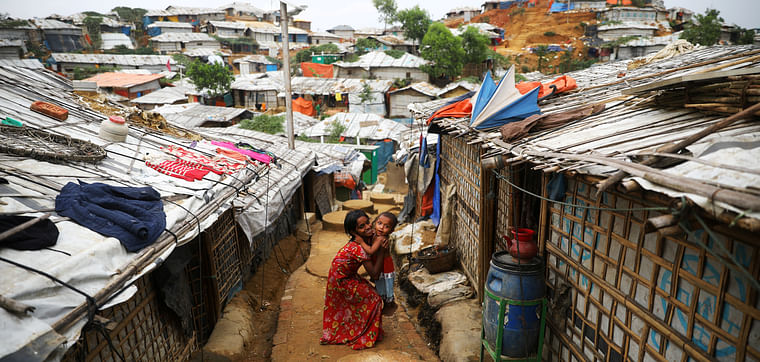
Over the past three years, neither bilateral nor trilateral efforts have yielded any results in Rohingya repatriation. Under the circumstances, Bangladesh is now looking to involve India, Japan and South Korea, alongside China, in the effort to create an environment in Myanmar’s Rakhine state conducive to the return of the Rohingyas. China has said that it would have no problem if Bangladesh engages India as well in the repatriation process.
Officials of the foreign ministry, speaking to Prothom Alo, said China had assured Bangladesh that talks on the repatriation process would resume as soon as the new government took over in Myanmar, following the election to be held there on 8 November.
Speaking on the matter to Prothom Alo at his office on Thursday, foreign secretary Masud Bin Momen said that talks on Rohingya repatriation had been stalled due to the coronavirus outbreak as well as Myanmar’s elections. Bangladesh hoped that a new government would be installed through peaceful elections on the 8 November. Then repatriation talks could resume. Requests had been made to China in this regard and China is in regular contact with Myanmar.
At a conference for assisting Rohingyas, organised in October by four donors including the US, state minister for foreign affairs Md. Shahriar Alam stressed the need to create circumstances conducive for Rohingya repatriation. He said it was important for ASEAN countries, other countries neighbouring Myanmar, and the concerned UN agencies to create confidence among the Rohingyas so that they are willing to return.
China, Japan, India and South Korea has significant investments in Myanmar. These countries would want regional stability for the sake of their investments. If the Rohingya crisis lingers on for long, this could create security threats and so these countries may play a role in resolving the problem.
Bangladesh’s diplomats in Dhaka, Yangon and New York said that it is the Myanmar government that must ensure security in Rakhine. But there is no alternative to the involvement of neighbouring countries of Myanmar, ASEAN nations and UN agencies being involved in ensuring livelihood and normal life for the Rohingyas once they return to Rakhine.
Former foreign secretary Touhid Hossain, speaking to Prothom Alo, said China, Japan, India and South Korea has significant investments in Myanmar. These countries would want regional stability for the sake of their investments. If the Rohingya crisis lingers on for long, this could create security threats and so these countries may play a role in resolving the problem. But in the geopolitical context, these countries have a common stance and will uphold their own interests. So it would be wise to take this into cognizance when considering how far they will tilt towards assisting Bangladesh.
*This report appeared in the print and online editions of Prothom Alo and has been rewritten for the English edition by Ayesha Kabir









